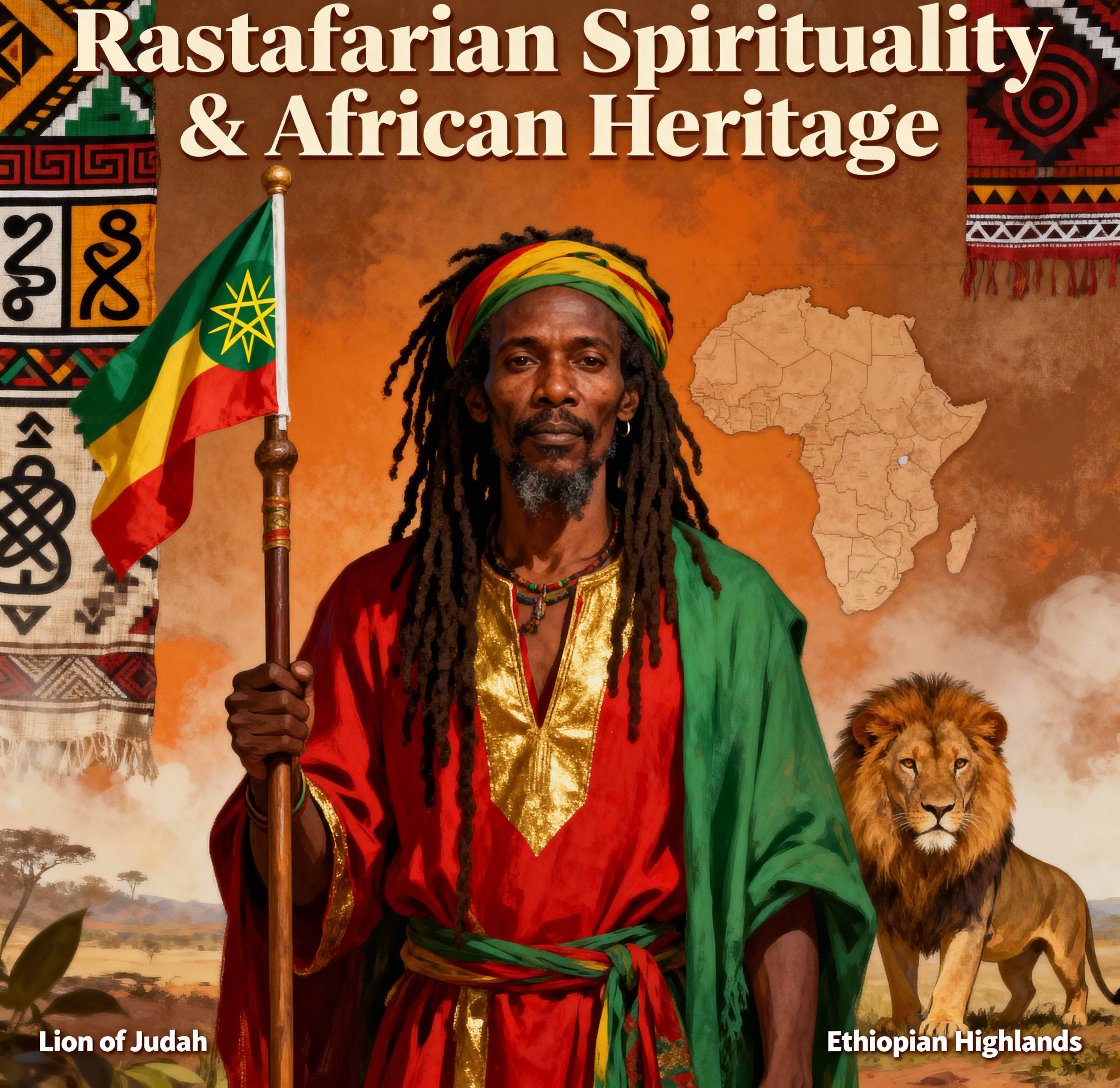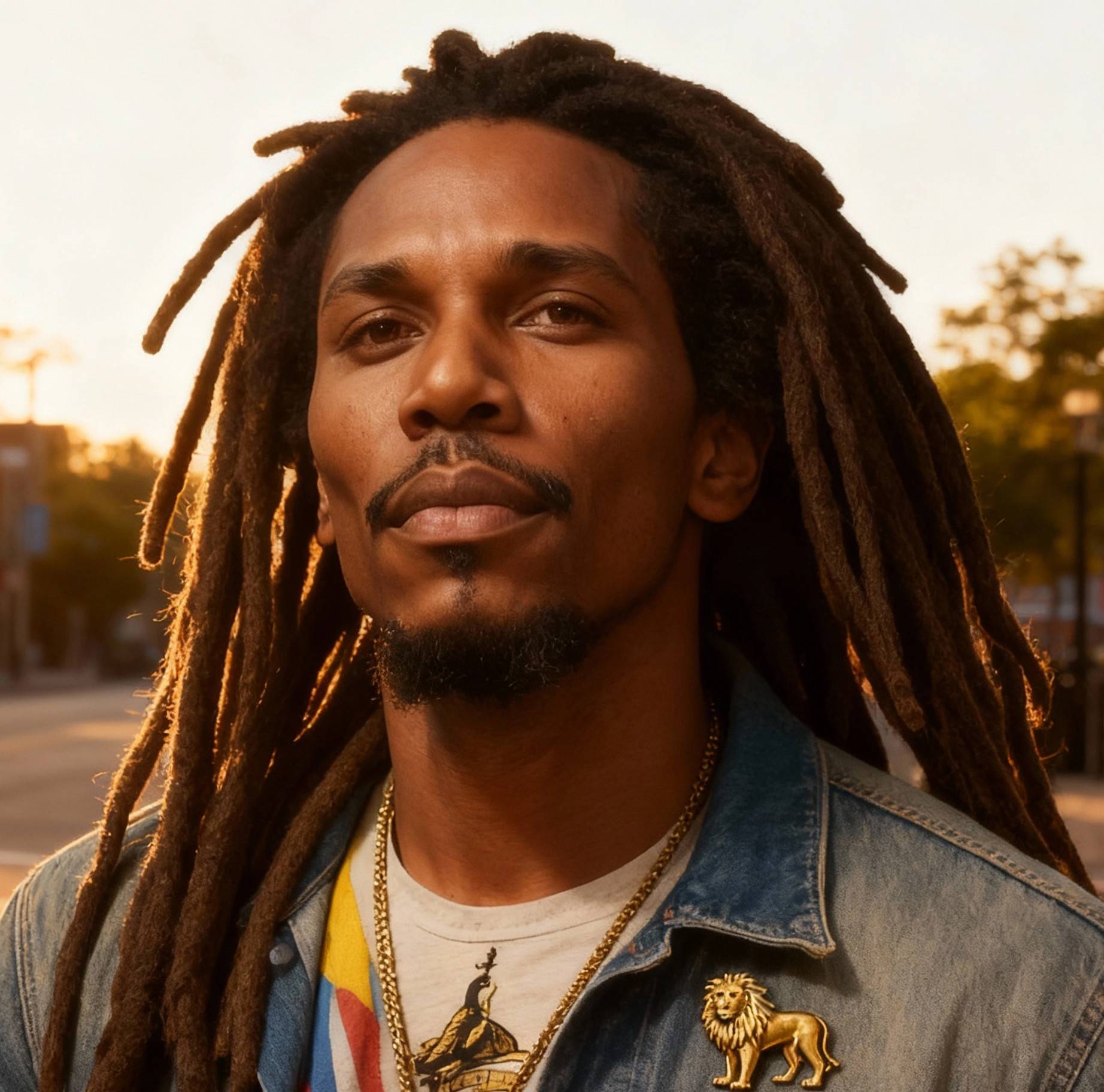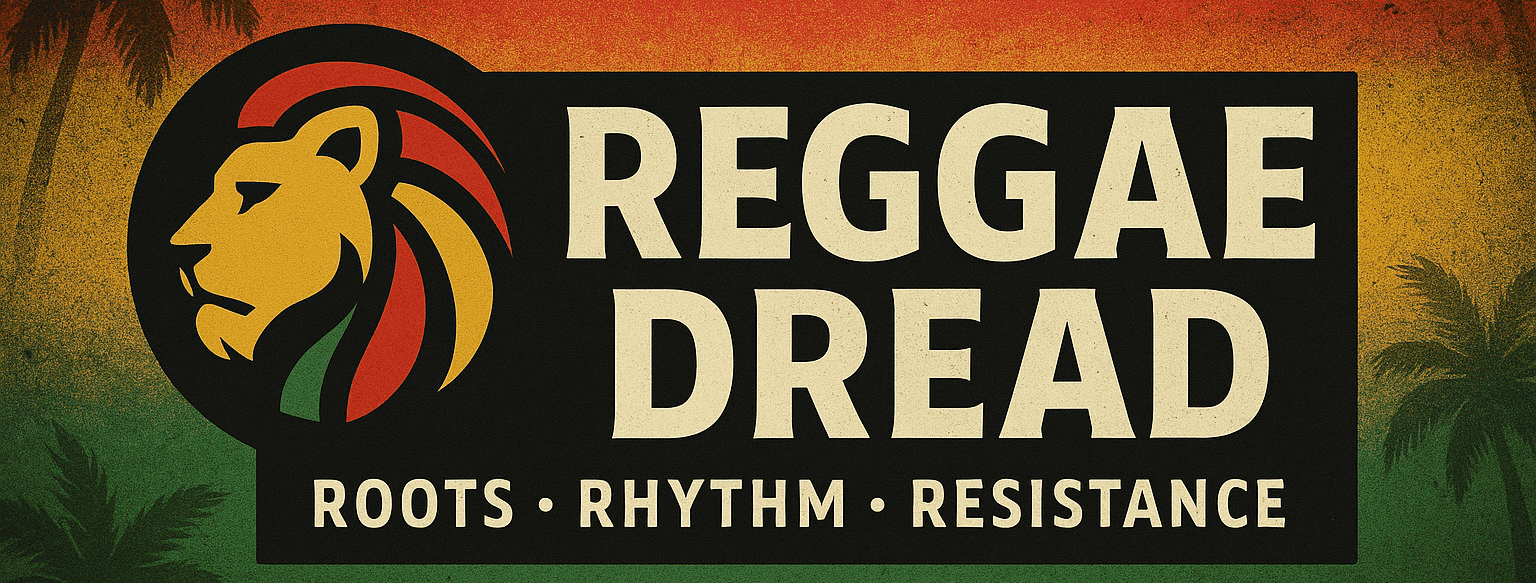Rastafarian Spirituality and Its Connection to African Heritage

The Origins of Rastafarian Spirituality
Rastafarian spirituality is not merely a religion but a cultural and spiritual awakening born from the struggles of African descendants in Jamaica. Emerging in the early 20th century, it became both a faith and a movement dedicated to reconnecting with African heritage, identity, and liberation. To understand its significance, one must trace its historical, cultural, and spiritual foundations.
Roots in Jamaica’s History
Rastafarianism developed in the 1930s during a period when Jamaica was under the lingering grip of colonial rule and racial inequality. For many Afro-Jamaicans, poverty, marginalization, and systemic injustice were daily realities. Out of this environment came a search for identity and empowerment, and Rastafarianism provided the answers.
The philosophy drew heavily on Marcus Garvey’s Pan-African vision, particularly his prophecy urging people of African descent to “look to Africa, where a Black king shall be crowned.”
This prophecy was interpreted as a call for the restoration of dignity and pride to people of African heritage.
Rastafarian spirituality was therefore born as a response to oppression, offering not only faith but also a cultural framework for resistance.
This powerful origin story demonstrates how Rastafarianism is deeply rooted in both history and struggle, positioning it as a faith inseparable from the broader journey of the African diaspora.
The Role of Ethiopia
Ethiopia holds a sacred place in Rastafarian belief. When Ras Tafari Makonnen was crowned as Emperor Haile Selassie I of Ethiopia in 1930, many saw this as the fulfillment of Garvey’s prophecy. For Rastafarians, Selassie became a living symbol of African sovereignty, resilience, and divine authority.
Ethiopia is revered as the spiritual homeland, representing freedom from colonial oppression.
The biblical connection to Ethiopia and references to Zion strengthen its role as a holy land.
Haile Selassie is honored as a messianic figure, embodying leadership, justice, and the restoration of African pride.
Through Ethiopia, Rastafarian spirituality links the struggles of Afro-Jamaicans to the broader narrative of African liberation and resilience, making the faith globally relevant.
Rastafarian Beliefs and Practices
At its heart, Rastafarian spirituality is about living in alignment with nature, ancestry, and divine truth. Its practices are not simply symbolic; they represent a lifestyle rooted in African traditions.
Ital lifestyle: A natural, plant-based diet that avoids processed foods, reflecting African herbal traditions and respect for the earth.
Dreadlocks: Inspired by biblical Nazarite vows and African warrior symbolism, they represent strength, identity, and resistance to Western conformity.
Reggae music: More than entertainment, reggae serves as a vehicle for spiritual expression, activism, and the preservation of African heritage.
Communal living: Rastafarians emphasize unity, reflecting African traditions of community and collective responsibility.
These practices highlight how Rastafarianism is not simply a set of beliefs but a way of life, rooted in spiritual freedom and African identity.
FAQs: The Origins of Rastafarian Spirituality
Q: What historical conditions gave rise to Rastafarianism?
A: It emerged in Jamaica during the 1930s as a response to colonial oppression, racial inequality, and the need for African descendants to reclaim their identity.
Q: Why is Haile Selassie central to Rastafarian beliefs?
A: Selassie represents the fulfillment of prophecy, a symbol of African sovereignty, and a divine leader connecting Rastafarians to their African heritage.
Q: How do Rastafarian practices reflect African traditions?
A: Through the Ital diet, dreadlocks, music, and communal living, Rastafarians embody values and customs rooted in ancestral African spirituality.
Rastafarianism’s origins reveal a powerful blend of faith, history, and resistance, creating a path back to African identity for people of the diaspora. Yet its significance extends beyond its beginnings, for at its very core lies a deeper mission: embracing African heritage as the foundation of Rastafarian identity.
African Heritage as the Core of Rastafarian Identity
At its foundation, Rastafarian spirituality is not just a belief system—it is a reclamation of African roots and cultural pride. For Rastafarians, embracing African heritage is essential to spiritual liberation, self-determination, and freedom from oppressive systems often described as Babylon. The movement places Africa at the heart of identity, not as a distant land but as a living source of history, strength, and divine inspiration.
Pan-Africanism and Spiritual Liberation
Rastafarianism is deeply connected to the ideals of Pan-Africanism, a philosophy that emphasizes unity among people of African descent worldwide.
It reflects Marcus Garvey’s call for Africans in the diaspora to reconnect with their homeland.
Pan-Africanism within Rastafarianism is not just political—it is spiritual, emphasizing the liberation of the mind and soul.
Africa is seen as Zion, the sacred place of freedom, while Babylon symbolizes colonialism, oppression, and cultural disconnection.
Through this worldview, Rastafarianism offers followers a way to resist cultural erasure and embrace a deeper spiritual identity linked to Africa.
Symbols and Practices with African Roots
Rastafarian practices and symbols are not random; they are deeply embedded in African traditions and spiritual heritage.
The Lion of Judah: A symbol of strength, royalty, and divine authority, rooted in Ethiopian and biblical traditions.
Red, gold, and green colors: Represent the Ethiopian flag and symbolize blood, wealth, and the land, all tied to African struggles and triumphs.
Nyabinghi drumming: Originating from African spiritual ceremonies, it is used in Rastafarian rituals to honor ancestors and resist oppression.
These cultural symbols remind Rastafarians that their spiritual identity is inseparable from their African lineage and ancestral wisdom.
Rediscovering Ancestral Knowledge
One of the most profound contributions of Rastafarian spirituality is the emphasis on rediscovering African ancestral knowledge. This includes traditions that were often suppressed during slavery and colonialism.
Herbal medicine and natural healing: A continuation of African herbalist traditions, emphasizing balance with nature.
Communal living: Reflects African values of shared responsibility and interconnectedness.
Respect for elders and ancestors: Honoring those who came before is central to spiritual practice and cultural survival.
By reclaiming these practices, Rastafarians actively challenge the cultural amnesia imposed by colonialism, asserting a heritage that is alive and thriving.
FAQs: African Heritage in Rastafarian Identity
Q: Why is Africa so central to Rastafarian spirituality?
A: Because Rastafarianism views Africa as Zion—the true spiritual homeland—and the source of identity, pride, and liberation for people of African descent.
Q: What symbols connect Rastafarians to African heritage?
A: The Lion of Judah, the Ethiopian colors, and Nyabinghi drumming are all rooted in African traditions and serve as cultural and spiritual anchors.
Q: How does Rastafarianism preserve African ancestral knowledge?
A: Through practices like herbal healing, communal living, and honoring elders, Rastafarians maintain links to traditional African wisdom.
By grounding its beliefs and practices in African heritage, Rastafarian spirituality provides a framework for empowerment and reconnection for the African diaspora. Yet this identity is not confined to Jamaica or Africa—it has rippled across the world, inspiring communities to embrace culture, pride, and justice through spirituality and art.
Global Impact of Rastafarian Spirituality
Rastafarian spirituality, while born in Jamaica, has grown into a global cultural and spiritual force. Its emphasis on African heritage, justice, and unity resonates with people across continents, shaping not only religious practices but also music, art, identity, and activism. Through powerful cultural expressions and universal messages, Rastafarianism has become a bridge connecting the African diaspora and inspiring people far beyond the Caribbean.
Spreading African Heritage through Music
Perhaps the most significant way Rastafarian spirituality achieved global reach is through music—particularly reggae.
Bob Marley became the face of Rastafarianism worldwide, using reggae as a spiritual and political tool. His songs like Africa Unite and Exodus introduced millions to the Rastafarian worldview and its deep ties to African heritage.
Reggae festivals and concerts around the world often double as celebrations of Rastafarian identity, turning music into a cultural education platform.
Other artists such as Burning Spear, Peter Tosh, and Steel Pulse continued spreading messages of resistance, unity, and Pan-African pride.
Through reggae, Rastafarian spirituality moved from local gatherings in Kingston to the global stage, carrying Africa’s voice into mainstream consciousness.
Diaspora and Identity Reclamation
For African descendants scattered across the world, Rastafarian spirituality offers a pathway to identity reclamation and empowerment.
In the Caribbean, Rastafarianism has helped people reconnect with African roots and resist the lingering effects of colonialism.
In the United States, it has influenced Black cultural and political movements, aligning with civil rights and Pan-African struggles.
Across Europe and Latin America, Rastafarian communities have emerged, embracing the Ital lifestyle, dreadlocks, and reggae as symbols of resistance and cultural pride.
For many in the diaspora, Rastafarianism acts as a spiritual compass, guiding them toward Africa not just geographically, but emotionally and spiritually.
Modern Expressions of African Consciousness
Rastafarian spirituality continues to inspire modern forms of African consciousness that stretch beyond religion.
Fashion: The red, gold, and green colors of Ethiopia appear in streetwear, jewelry, and cultural attire, symbolizing unity and pride.
Art: Murals, paintings, and sculpture often feature the Lion of Judah, Haile Selassie, or Rastafarian imagery, reinforcing African heritage.
Activism: Modern movements for climate justice, racial equality, and decolonization invoke Rastafarian ideals of peace, community, and resistance to Babylon.
These expressions show that Rastafarianism is not confined to faith communities but has become a global cultural language of resistance and heritage.
FAQs: Rastafarianism’s Global Impact
Q: How did reggae make Rastafarian spirituality global?
A: Reggae carried Rastafarian beliefs into mainstream culture, allowing artists like Bob Marley to spread messages of unity, African pride, and liberation worldwide.
Q: Is Rastafarianism only practiced in Jamaica?
A: No. Communities exist across the Caribbean, North America, South America, Europe, and Africa, making it a truly global spiritual movement.
Q: How does Rastafarianism influence modern culture beyond religion?
A: Through fashion, art, activism, and music, it inspires pride in African heritage and continues to challenge systems of oppression.
The global impact of Rastafarian spirituality demonstrates its role as more than a Jamaican religious movement—it is a universal call for justice, identity, and heritage. Yet, with its growing visibility comes challenges, including stereotypes, misrepresentation, and internal struggles that affect how the world perceives Rastafarianism.
Challenges and Misunderstandings
Despite its profound cultural and spiritual depth, Rastafarian spirituality has often been misunderstood, misrepresented, and even marginalized. While the movement has achieved global recognition, it continues to face challenges that affect how it is perceived and practiced. From stereotypes fueled by the media to internal differences among its branches, these obstacles reveal the complexities of preserving Rastafarianism’s true essence.
Stereotypes and Misrepresentation
One of the most significant challenges facing Rastafarianism is the prevalence of stereotypes. Too often, the movement is reduced to superficial symbols without acknowledging its spiritual or cultural foundations.
Misconception of dreadlocks: Many outsiders view dreadlocks merely as a hairstyle, ignoring their biblical and African symbolic roots representing strength, covenant, and resistance.
Association with marijuana: While the sacramental use of ganja is part of Rastafarian ritual, mainstream media has exaggerated this aspect, overshadowing the movement’s deep messages of liberation, unity, and African heritage.
Commercial exploitation: Fashion and pop culture often use Rastafarian symbols, such as red, gold, and green, in ways that strip them of their sacred meanings.
These misrepresentations contribute to a shallow global image of Rastafarianism, making it harder for the movement to be respected as a serious spiritual path.
Internal Struggles within the Faith
Rastafarianism is not a monolithic faith. It consists of several branches, often called Mansions of Rastafari, each with distinct interpretations and practices.
Nyabinghi Order: Focuses on traditional drumming ceremonies and a strict interpretation of Rastafarian principles.
Bobo Ashanti: Known for its priesthood structure, unique dress codes, and emphasis on ritual purity.
Twelve Tribes of Israel: More flexible and structured around biblical tribes, appealing to a broader global following.
These internal differences can sometimes create fragmentation, making it challenging to present a unified identity. Yet, these variations also reflect the movement’s adaptability and diversity.
The Ongoing Struggle for Recognition
Globally, Rastafarians have long faced social, cultural, and legal challenges.
In Jamaica, the birthplace of the movement, Rastafarians historically suffered from discrimination, police harassment, and marginalization.
In many countries, Rastafarian religious practices, such as the sacramental use of cannabis, have clashed with national laws.
Despite the growing acceptance of reggae and Rastafarian imagery, many practitioners still fight for their faith to be recognized with the same respect as other world religions.
This struggle for recognition underscores the broader issue: Rastafarianism is more than music, fashion, or lifestyle—it is a legitimate spiritual and cultural system rooted in African identity.
FAQs: Challenges Facing Rastafarianism
Q: Why is Rastafarianism often misunderstood?
A: Media portrayals often focus on dreadlocks and cannabis while ignoring the movement’s spiritual depth, African heritage, and resistance to oppression.
Q: Do all Rastafarians believe the same things?
A: No. Rastafarianism has several branches (Nyabinghi, Bobo Ashanti, Twelve Tribes of Israel), each with unique practices but united by core principles of African pride and liberation.
Q: What barriers do Rastafarians face today?
A: Discrimination, legal restrictions on religious practices, and cultural misrepresentation continue to challenge the community worldwide.
The challenges and misunderstandings surrounding Rastafarian spirituality reveal both the resilience of its followers and the work still needed to preserve its authenticity. To truly appreciate its impact, however, we must recognize not just its struggles but also its promise for the future.
The Future Path of Rastafari and Its Global Relevance
The Rastafari movement has long stood as a symbol of resistance, spiritual awakening, and cultural empowerment. Yet its story does not end with historical struggles or past victories—it continues to evolve, adapt, and resonate with new generations across the world. As we look ahead, the question becomes: how will Rastafari remain a guiding force in the global pursuit of justice, identity, and unity?
Embracing a Dynamic Future
Rastafari has never been a static philosophy. It has adapted from its early roots in Jamaica’s colonial resistance to becoming a global movement that informs music, politics, diet, fashion, and spirituality. Moving forward, its survival and influence will depend on:
Intergenerational Transfer of Knowledge: Ensuring that younger generations learn the principles of self-reliance, ital living, and Pan-African consciousness.
Integration with Modern Movements: Aligning with climate justice, human rights, and social equity initiatives.
Cultural Preservation: Protecting traditions like dreadlocks, Nyabinghi drumming, and ital food practices from dilution while finding space for innovation.
Rastafari in the Digital Age
The digital era offers new opportunities for Rastafari to spread its message globally. With online platforms, Rasta communities can connect across continents, exchange ideas, and use technology to amplify calls for justice and equality. Some possibilities include:
Virtual Nyabinghi gatherings bringing together voices from Africa, the Caribbean, Europe, and the Americas.
Educational platforms teaching Rastafari history, values, and its role in Pan-African identity.
Reggae and Rastafari digital archives, ensuring that the legacy of artists like Bob Marley, Peter Tosh, and Burning Spear is preserved for future study.
The Role of Rastafari in Global Justice
Rastafari’s foundation is rooted in liberation theology and the pursuit of equality. As such, it has natural intersections with today’s justice movements, including:
Racial equity and anti-colonial struggles across the globe.
Environmental justice movements, especially around sustainability and earth stewardship.
Global solidarity networks, uniting marginalized communities through the principles of unity and resistance.
Challenges Ahead
Even with its continued influence, Rastafari faces challenges that must be addressed to remain relevant:
Commercialization of culture, where Rastafarian symbols are often appropriated without respect for their sacred meaning.
Fragmentation within communities, as different mansions of Rastafari may differ on doctrine and practice.
Misrepresentation in media, often reducing Rastafari to stereotypes instead of highlighting its deep spiritual and cultural philosophy.
FAQs About the Future of Rastafari
Q1: Will Rastafari remain relevant to younger generations?
Yes. As long as Rastafari connects its principles of justice, identity, and sustainability to the pressing issues of today, it will continue to inspire younger generations worldwide.
Q2: How does Rastafari address modern challenges like climate change?
Rastafari promotes an Ital lifestyle—natural, organic, and sustainable—which aligns directly with eco-conscious living and climate activism.
Q3: Can Rastafari be practiced outside Jamaica?
Absolutely. While it was born in Jamaica, its universal principles of equality, resistance, and spirituality make it globally accessible. Communities exist in Africa, Europe, North and South America, and beyond.
A Living Movement with Timeless Relevance
The journey of Rastafari across five key dimensions reveals a powerful narrative:
Its origins in Jamaica’s colonial resistance.
Core beliefs rooted in Haile Selassie, Pan-Africanism, and ital living.
Global influence across music, politics, and identity.
Cultural contributions to art, lifestyle, and spirituality.
The future path, where Rastafari adapts to the digital age, aligns with global justice, and continues to inspire generations.
As we reflect on this five-part exploration, it becomes clear that Rastafari is not merely a movement of the past—it is a living, breathing force guiding humanity toward freedom, unity, and spiritual awakening. The red, gold, and green banners will continue to wave, reminding the world that the struggle for justice and dignity is ongoing, and that Rastafari remains both a light of hope and a call to action.


























